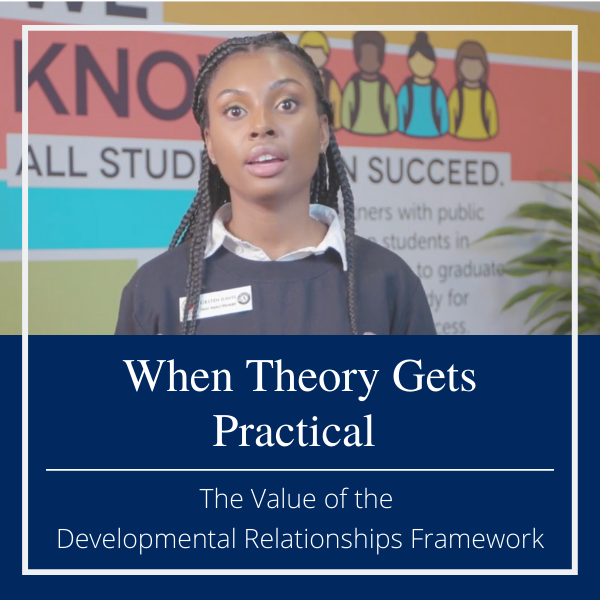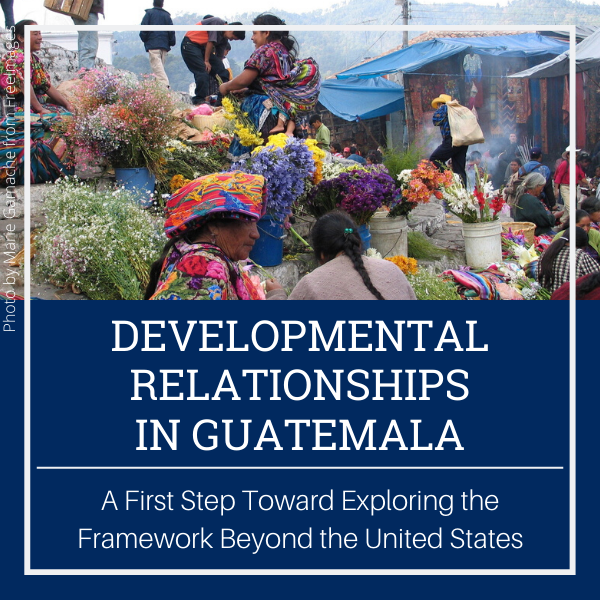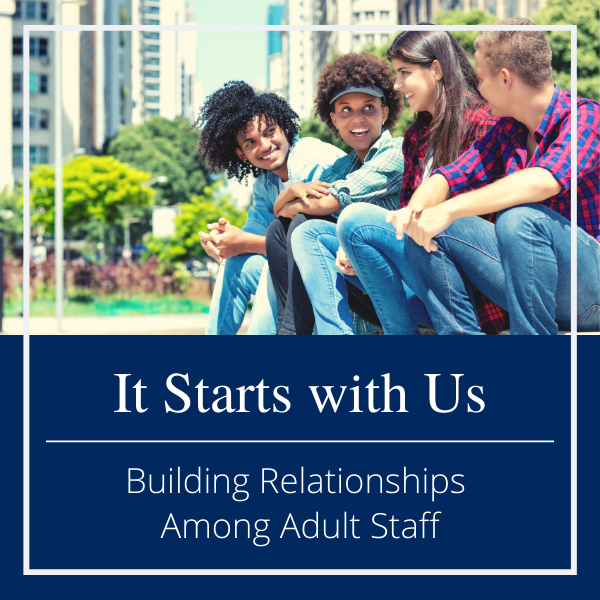Blog
Behind the Framework: How the Developmental Relationships Framework Was Co-Created
At Search Institute, we believe that nothing has more impact in the life of a child than positive relationships. This simple but powerful insight is the root of our work on the Developmental Relationships Framework, a framework that has now helped hundreds of thousands of adults build stronger, more meaningful relationships with the young people they serve.
But where did the framework come from? How was it created? The answer is a story of collaboration, curiosity, and a commitment to bridging research and practice.
Why Relationships? A Challenge from the Field
The spark for this work came from a simple but striking observation. We heard a common refrain during interviews with 55 leaders of youth-serving organizations across the country:
We know relationships matter. We talk about them all the time. But we don’t have clear guidance on how to build them—and we aren’t measuring them.
This gap between belief and practice inspired us to ask two driving questions:
-
What research-based resources could help adults build relationships that support youth learning and development?
-
When adults use those resources, do relationships and youth outcomes improve?
Co-Creating Through Research and Practice
From the beginning, we believed that youth voice, practitioner wisdom, and developmental science each had to shape the answers.
Our process started in 2013 with:
- A review of decades of interdisciplinary research on relationships.
- New analyses of Search Institute’s extensive datasets on youth development.
- 18 focus groups with youth, parents, educators, and youth workers, intentionally inclusive across race, ethnicity, socioeconomic status, and community type.
What emerged was a clear insight: caring about youth is necessary, but not enough. Truly developmental relationships also challenge growth, provide support, share power, and expand possibilities.
A Framework for Action
Over the past decade, the Developmental Relationships Framework has been shaped and strengthened through real-world partnerships and continuous learning. More than 50,000 young people and thousands of educators and youth practitioners have contributed to its evolution, across schools, out-of-school programs, community organizations, and systems. Together, we’ve tested, adapted, and localized the Framework to reflect diverse lived experiences, cultural contexts, and emerging needs in youth development.
We are working continuously to ensure the framework bridges across cultural and systemic differences. Importantly, we’ve learned that adult perceptions often differ from youth experiences, making youth feedback critical to relational practice.
The result is a practical, strengths-based framework built for real-world use:
- 5 core elements: Express Care, Challenge Growth, Provide Support, Share Power, Expand Possibilities.
- 20 actionable behaviors that adults can integrate into everyday interactions.
- Tools and assessments that help measure and strengthen relational practice.
The impact is clear: when young people experience strong developmental relationships, they show higher social-emotional competencies, stronger academic outcomes, greater sense of purpose, and more resilience.
What’s Next: Growing the Roots
The Developmental Relationships Framework was, and continues to be, co-created with the field. We continue to learn alongside our partners to adapt tools for diverse cultural contexts, expand peer-to-peer relational work, and explore how systemic changes can create “relationship-rich” organizations and ecosystems.
The metaphor we often return to is this: relationships are the roots from which youth thriving grows. The deeper and more nurtured those roots, the more resilient and flourishing our young people will be.
We are deeply grateful to the educators, youth workers, parents, young people, and partners who have shaped and strengthened this work. And we remain committed to walking alongside you to keep learning, adapting, and building relationship-rich environments where all young people can thrive.





